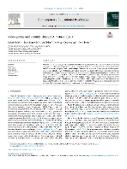Video games and attitude change: A meta-analysis

Autor
Datum vydání
2023Publikováno v
Contemporary Educational PsychologyRočník / Číslo vydání
2023 (75)ISBN / ISSN
ISSN: 0361-476XMetadata
Zobrazit celý záznamTato publikace má vydavatelskou verzi s DOI 10.1016/j.cedpsych.2023.102225
Abstrakt
Video games are increasingly portraying many topics that we face in our everyday lives. Yet we have only limited evidence about the way narrative games affect how we think about the topics they depict; in other words, about the link between these games and attitude change. Therefore, we conducted a meta-analysis of video games' effect on attitudinal change. The findings suggest that narrative video games affect players' attitudes towards the topics depicted in games. This effect was present in studies focused on changes in both implicit (g = 0.36, k = 18) and explicit attitudes (g = 0.24, k = 101). Longer intervention duration and game mechanics such as stereotyping and meaningful feedback resulted in larger implicit attitude change. Regarding the robustness of the underlying evidence, half of the included studies were judged to be at high risk of bias. On the other hand, the impact of publication bias in this literature was found to be negligible. Altogether, this meta-analysis provides evidence that video games shape how we think about topics they represent.
Klíčová slova
Attitudes, Video games, Meta-analysis, Game mechanics, Persuasion, Attitude change
Trvalý odkaz
https://hdl.handle.net/20.500.14178/2341Licence
Licence pro užití plného textu výsledku: Creative Commons Uveďte původ 4.0 International






